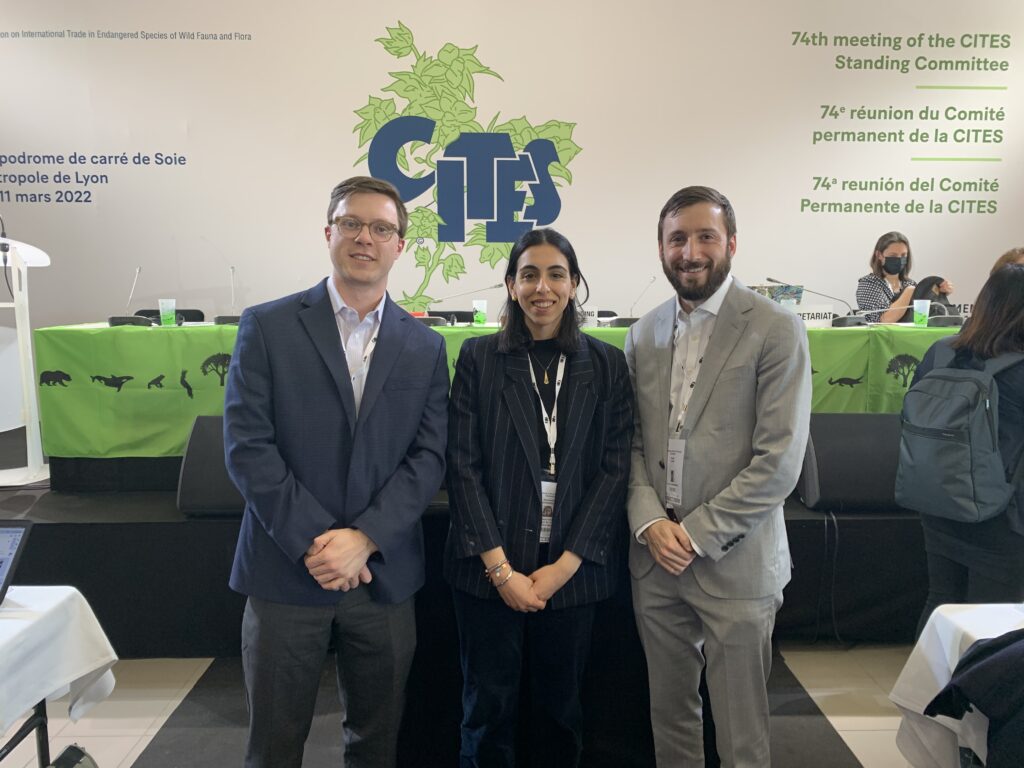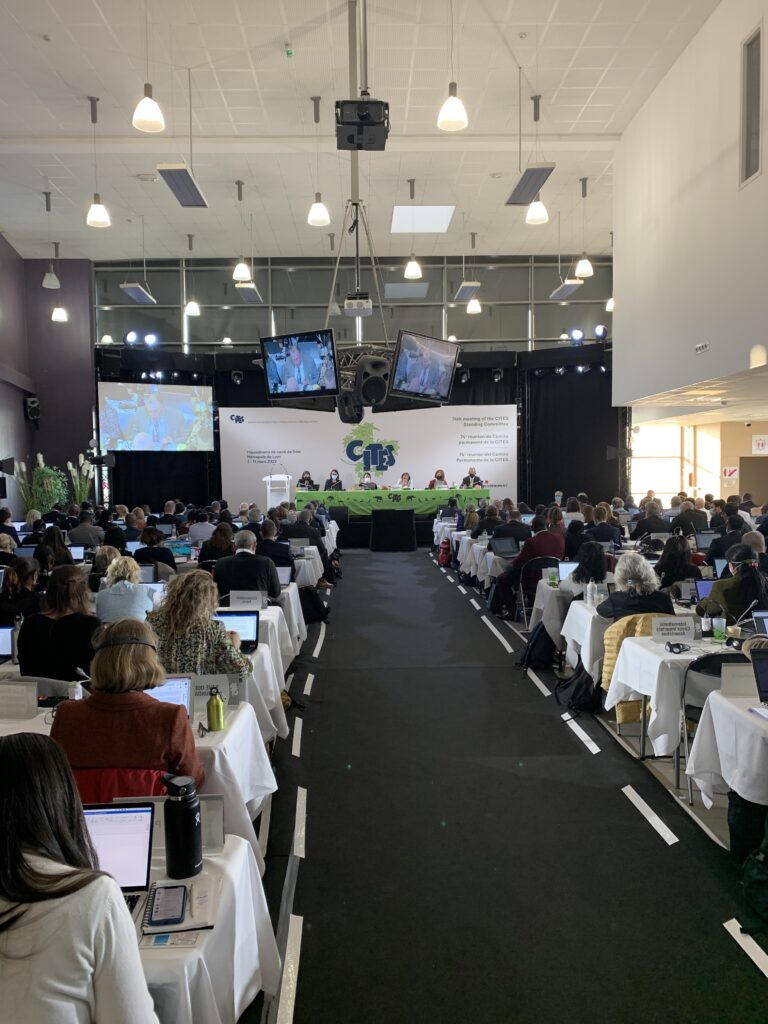By: Joe Goergen & Jeremy Clare

Middle:Konstantina Katrimpouza, FACE Legal Affairs Officer
Right: Jeremy Clare, SCI Litigation Counsel and CITES Manager
SCI and SCI Foundation have engaged with CITES since the Convention began in the 1970s, advocating for sustainable wildlife trade on behalf of the international hunting industry. Both organizations continued this long-term advocacy at the recent 74th Standing Committee (SC74) meeting in Lyon, France March 7 – 11, 2022.
CITES, the Convention on International Trade in Endangered Species of Fauna and Flora, is a multilateral environmental agreement that regulates trade in wildlife and has 184 signatory government Parties. Along with our partners at the European Federation of Associations for Hunting and Conservation, International Council for Game and Wildlife Conservation, and Conservation Force, among others, SCI and SCIF attended SC74, the first in-person CITES meeting since 2019.
Through the work of SCI and SCIF experts over the years and engagement from our current CITES delegation, hunting trophies are generally recognized as a form of sustainable trade and well regulated. However, there remain many issues to monitor, and it is critical to continually engage with other sustainable use organizations and range states with robust hunting programs.

Like nearly all CITES meetings, SC74 was overwhelmed with too many agenda items. This is an ongoing trend within CITES as the bureaucratic body attempts to address an increasing number of wildlife-related matters outside the scope of the Convention, including many that remain underfunded or entirely unfunded. Current issues of interest to SCI and SCIF focus on the review of African leopard hunting quotas, guidelines for lion conservation, inclusion of indigenous peoples and local communities impacted by CITES listings in the decision-making process, administrative items with the potential to further impact trade in hunting trophies, and other items that could undermine sustainable use trade regimes.
CITES unfortunately continues to be a top-down control-minded Convention with a growing influence from Euro-American protectionist NGOs seeking to expand CITES’ role into areas of national wildlife management and even zoonotic disease prevention. Still, it was beneficial for Safari Club’s team to participate in-person, helping to mitigate influence by animal rights groups.
SC74 is the last Committee meeting before the 19th Conference of the Parties (CoP19), which will be held in Panama City this November. Safari Club and SCI Foundation will once again attend in Panama as we have since the inception of CITES. SCI and SCIF look forward to engaging with the Parties on existing and new issues that will be addressed at CoP19.
Range states from southern Africa were also well represented in Lyon by the parties of Mozambique, Namibia, South Africa, Tanzania, and Zimbabwe. SCIF will host its 20th anniversary African Wildlife Conservation Forum (AWCF) in Maputo, Mozambique before the CoP19 with an agenda dedicated to regional strategy towards CITES.

